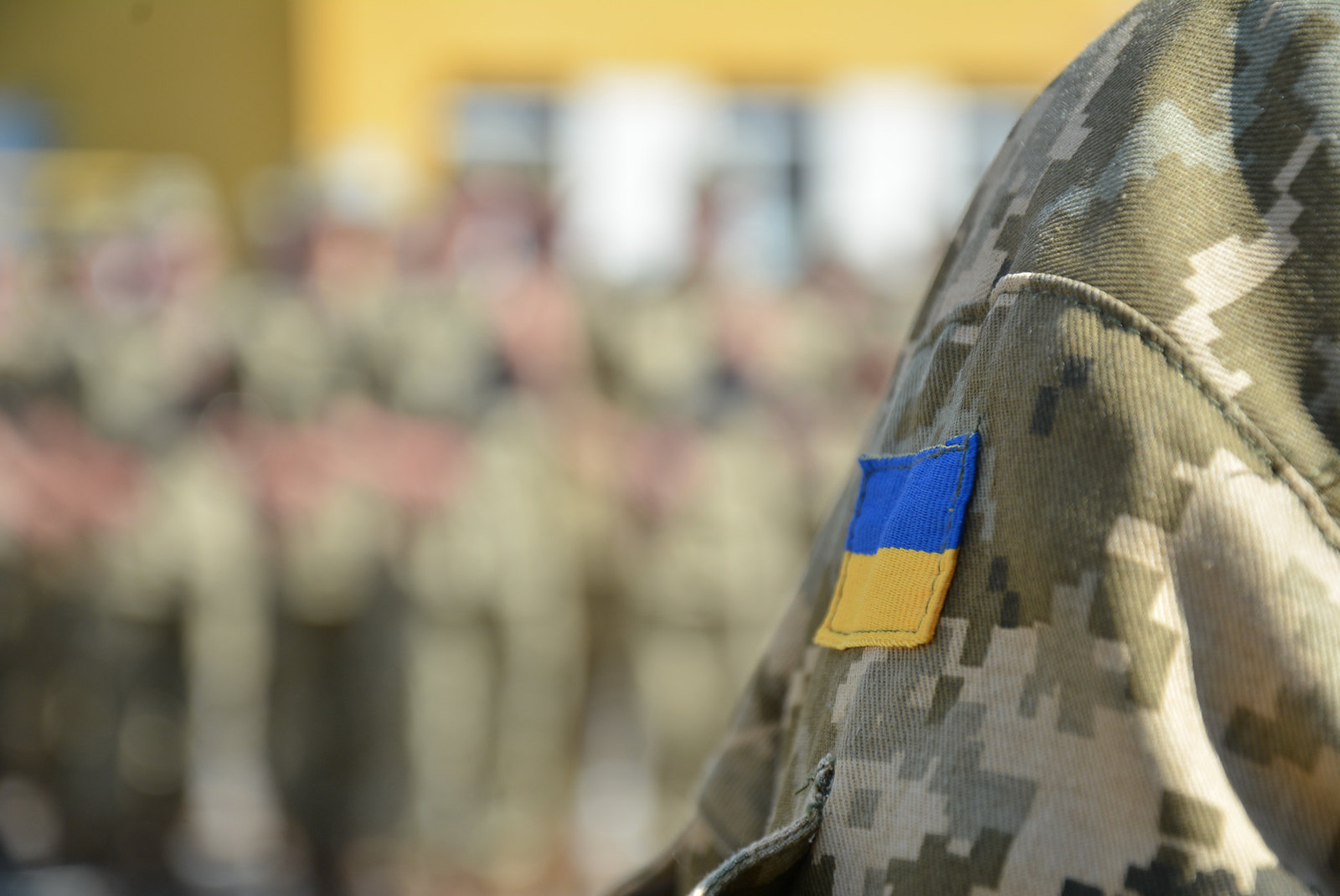Practicing attorney and lawyer with more than 12 years of practical experience in various branches of law
Bill 10378 introduced global changes to the law on mobilization. In my opinion, the bill is catastrophic, it has not yet entered into force, it is still only being discussed, but there are very real chances that all the changes in it may come into force and quite quickly.
- Unless, of course, a kind uncle appears and cancels it in order to score political points, which I also do not exclude.
- But now the deferment from mobilization of many is under threat, and the responsibility for failure to appear in the military registration office and what is planned and in general the possibility to live peacefully a person liable for military service without a military registration office is now under a big question.
- In this article I will deal with the question of who will be canceled deferment under the bill 10378, and who still has it. I will cover the rest of the issues in future articles.
Who will have their draft deferment taken away, and who will keep it
In order to answer this question let's look at the planned changes to Article 23 of the Law of Ukraine "On Mobilization Preparation and Mobilization". They are on page 16 of our draft law 10378.
And according to these changes the deferment remains for such categories of persons:
- those who are booked, everything is fine with them and everything is unchanged;
- those recognized by the VLK as temporarily unfit for military service. But as we know in practice, it is almost unrealistic to get such a conclusion of VLC;
- for the disabled of group 1 and 2. And this means that they want to take away the deferment from mobilization from the disabled of group 3. At the moment, the deferment from mobilization is available to disabled people of 1, 2, and 3 groups, regardless of whether they are fully or partially fit for military service. But if the changes are adopted, the deferment from the army will remain only for disabled people of groups 1 and 2, and that's it. And in fact it is a disaster. How in general we imagine a fighting man without an eye or fingers, I do not understand. He will not even last a day or two on the battlefield. So the big question is what mobilization plan we want to fulfill in this way and for what purpose;
- large families with 3 or more children remain deferred;
- those who raise a child up to the age of 18 on their own will also retain their right to deferment. And on this channel I have a video where I explain in detail how to get the status of a single father, which I recommend to everyone;
- those whose child under 18 years of age is disabled or sick with a particularly serious list of diseases also retain deferment. It is also preserved in those who have a child with a disabled child of group 1 or 2, who is already 18 years old. But in the case of an adult child remains an open question, how to prove that he is on the maintenance;
- Adoptive parents, guardians and custodians of children under 18 years of age retain deferment;
- deferment from mobilization is preserved for those whose wife, child or parents, according to the certificate of the MSEC or LCC, are in need of permanent care and for whom a person liable for military service has arranged care.
At the same time, in this paragraph in the wording that is now in force without changes, the deferment was also for the care of the wife's parents who need care.
- Strangely, but the wife's parents have been removed from this list.
- It turns out that if these changes are adopted, then those who had a LCC certificate for father-in-law or mother-in-law and who took care of them will lose the right to deferment;
- the right to deferment is preserved for those whose wife, parents or parents of the wife are disabled of group 1 or 2, provided that the disabled person has chosen a person liable for military duty to take care of them.
And this is where let's deal with it. There are both a lot of positives and negatives in this paragraph on the changes.
- From the negative, we see that the deferment from mobilization for those who have a wife disabled group 3, abolished. All, now only those who have a wife with a disability will be deferred from mobilization for the reason of having a wife with a disability group 1 or 2.
- On the positive side, we see that they have added the possibility for disabled persons to choose a military person for deferment.
- In the current version, the presence or absence of deferment on this basis depends on the presence or absence of other able-bodied relatives obliged to take care of the disabled person. And as we have encountered in practice, it is not so easy to prove the absence of such relatives, and there is no certificate about it.
- And in the planned changes, the legislator decided to remove this tie to proving the absence of other relatives. And to add the right for the disabled person to decide who will take care of him.
I think that in order to get a deferment in the presence of a wife, parent or parent of the wife of a disabled person of group 1 or 2 it will be enough to have a notarized statement that they confirm that such a relative is taking care of them and that they have chosen him to take care of them;
- guardians of incapacitated persons retain deferment from mobilization. But I remind you that in order to recognize a person as legally incapable, just his physical defects are not enough. He must have mental defects, not to realize his actions and not to be guided by them. And the procedure of recognizing a person incapacitated through the court, as well as the registration of guardianship takes 1-1,5 years minimum. Therefore, this option is not for everyone. If you do not have so much time or the relative realizes everything, mentally sane, but just not moving well or he has poor eyesight, then this option is not for you. It is for you to take care of him. Guardianship and caregiving are different things;
- and the strangest changes in the postponement of mobilization affected those who care for a disabled person of group 1, 2 or those who need constant care.
I remind you that at this moment in time, while there are no changes, the right to deferment from mobilization for care of a disabled person of group 1 has everyone who has such care. Even if it is a stranger and not a relative of the disabled person.
- In a similar situation, when a stranger, not a relative, or a relative, but not of the first degree of kinship, for example, a brother, sister, grandchild, has registered care for a disabled person of group 2 or for someone who has a certificate of the LCC that he or she needs care, deferment from conscription is available only if such a disabled person has no other persons capable of caring for them.
- But this is the case now.
- But in the amendments it is planned that only relatives of the 1st degree of kinship will have the right for deferment of care for a disabled person of the 1st or 2nd group or for someone who needs constant care, provided that the disabled person has chosen them for care.
In fact, if the changes are adopted in this form, it turns out that only the spouse, children, parents and all will be able to provide care for any disabled person. No more distant relative or just a non-relative will be able to get a deferment of care for him/her.
- And it turns out that the grandmother, who is cared for by her grandson, because her children are dead or disabled, will be left without care, and the grandson will be mobilized.
- And within the framework of these changes it is not clear why these separate paragraphs on deferment, as they completely duplicate the deferment in paragraphs 10, 11 of Article 23 of the Law of Ukraine "On Mobilization Preparation and Mobilization" to care for a wife or parents, disabled of group 1 or 2 or those who need care.
I hope that these amendments in this wording will not be adopted, otherwise a lot of disabled people, who simply have no relatives of the first degree of kinship, will be left to their own fate, left to their own devices;
- one of the parents, husband or wife is still entitled to deferment from the army, provided that they have a minor child under the age of 18, and the other spouse is mobilized;
- pregnant women or those who are on leave to care for a child up to 3 years of age or for special medical reasons up to 6 years of age are also eligible for deferment from mobilization;
- of course, the right to deferment of people's deputies of Ukraine, deputies of the Verkhovna Rada, employees of the police, SBU, AFU, Ministry of Defense, Foreign Intelligence Service, military authorities, National Anti-Corruption Bureau, State Bureau of Investigation, State Protection Department of Ukraine. Well, in general, you understand, no one has offended themselves.
Now as for students, teachers and researchers. Here, too, everything is interesting.
Postponement of many students and postgraduates is under threat.
- Postgraduates have been removed from the list of persons who are entitled to deferment from mobilization.
- In the version that is currently being discussed, graduate students are simply not on the list of those eligible for deferment. There are only undergraduates and doctoral students.
- As for students, students of full-time or dual form of education will be eligible for deferment only if they acquire a level of education higher than the previous one and in the same profile.
I.e., if you have a Bachelor's level of education and you re-enter as a Bachelor's student, you will not be eligible for deferment.
- But if you have a bachelor's level of education and you enroll in a master's program, then the deferment will be preserved. But provided that the education on the same profile.
- For example, if you had a profile of education on the level of bachelor in mechanical engineering, and on the master you entered on the profile of law, you will not have deferment.
- And here I see another problem related to the fact that graduate students have been thrown out. It turns out that those who already have a level of education master or specialist, which is now equated to it, lose their opportunity to get deferment as students, because the level higher for them is graduate school.
- And it turns out that it will not give them deferment from mobilization.
- The right to deferment from mobilization of doctoral students of full-time or dual form of education is also preserved.
But I am not sure that these changes for students will be adopted in such a version.
- As we remember, they recently tried to abolish the deferment of mobilization for students.
- And the draft law did not pass the European Commission, which objected that it had signs of age and education discrimination.
- There is no age discrimination in the changes that are planned. I agree here. That problem has been eliminated. There is no tie to the age of the student.
- But the discrimination based on educational attainment remains. And this is exactly what concerns the levels, which should be higher than the previous one, and in the same profile. These violations have not been eliminated.
As for scientific, pedagogical or scientific-pedagogical staff, they still have the right to deferment. But now it is, if they work at least 0.75 rate. And it is planned that it will be, only if they are employed at least full-time.
Now military commissariat is a dangerous strukchure, penalty for failure to appear at the military commissariat and escort at the military commissariat is not the worse you can get hiding from the military commissariat.

































